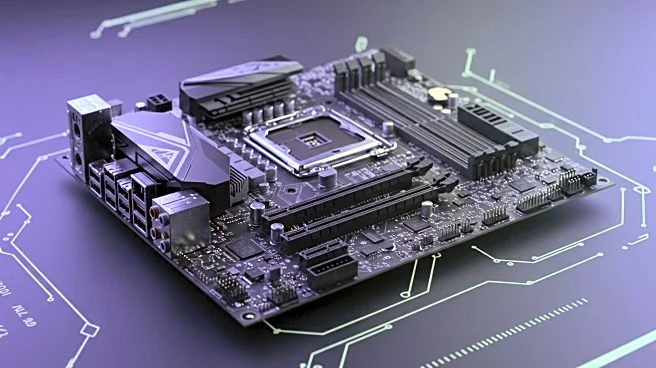What is the story about?
What's Happening?
NVIDIA has suspended the production of its H20 AI chips intended for the Chinese market due to security concerns raised by Chinese government officials. This decision follows ongoing trade restrictions between the United States and China, which have impacted the sale of high-powered AI chips. Despite previously securing a temporary export license, the Cyberspace Administration of China has blocked the sales of these chips, prompting NVIDIA to instruct its suppliers, including Amkor Technology and Samsung Electronics, to cease manufacturing. The H20 chip, a modified version of the H100 GPU, was initially banned from entering China, but a subsequent license allowed its export under specific conditions. However, the recent security concerns have led to a halt in production, affecting major Chinese tech companies like ByteDance, Alibaba Group, and Tencent Holdings, which have been advised to seek domestic alternatives.
Why It's Important?
The suspension of NVIDIA's H20 chip production highlights the ongoing tensions in US-China trade relations, particularly in the technology sector. This development underscores the strategic importance of AI technology and the geopolitical implications of its distribution. The halt in production could significantly impact NVIDIA's financial performance, as the company was poised to lose substantial revenue due to trade restrictions. Additionally, the move may accelerate China's efforts to develop its domestic semiconductor industry, reducing reliance on foreign technology. This situation reflects broader concerns about national security and technological sovereignty, influencing global supply chains and market dynamics.
What's Next?
The ongoing trade and security tensions between the US and China suggest that further developments are likely. NVIDIA may seek to negotiate new terms or explore alternative markets to mitigate the financial impact. Meanwhile, Chinese tech companies are expected to increase investments in domestic chip production to ensure supply chain stability. The US government may continue to adjust its policies regarding technology exports to balance economic interests with national security concerns. These dynamics could lead to shifts in global technology alliances and influence future trade negotiations.
















